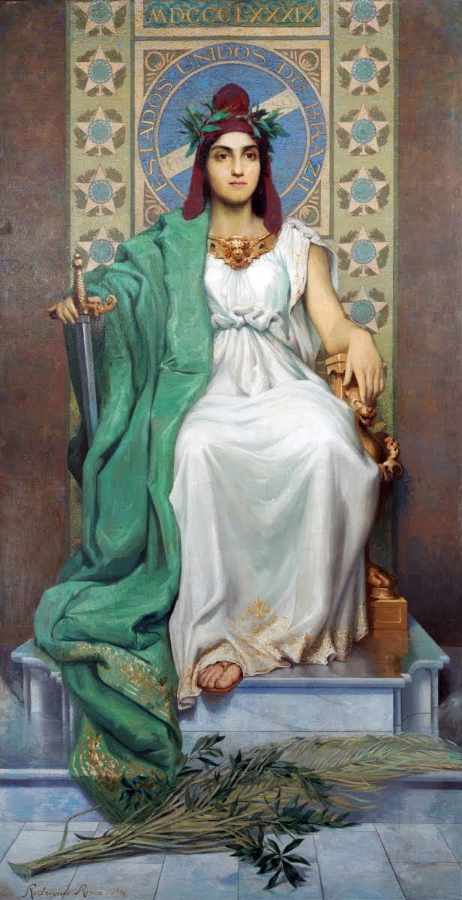The Efígie da República (Portuguese for Effigy of the Republic) is used as a national personification in Brazil. The effigy is a representation of a young woman wearing a crown of bay leaves in Roman style. It is present in allegoric paintings and sculptures displayed in government buildings throughout Brazil, and engraved on Brazilian real coins and banknotes. It was first used as a pro-Republican icon in the 19th century, inspired by France’s Marianne. After the proclamation of the Republic in 1889, it became an important symbol of the newly formed Republic.
| Alias Efígie da República |
| Real Names/Alt Names Efígie da República |
| Characteristics Personification, Patriot-themed, Realism and Victorian Age, Brazilian |
| Creators/Key Contributors Unknown |
| First Appearance Proclamation of Brazil’s First Republic |
| First Publisher Unknown |
| Appearance List First appeared on official seals, coins, and banknotes shortly after the Brazilian monarchy was overthrown and the First Republic proclaimed. Official adoption: The Law Decree of 1890 established it as a national symbol. |
| Sample Read ○ |
| Description The Efígie da República (Portuguese for Effigy of the Republic) is used as a national personification in Brazil. The effigy is a representation of a young woman wearing a crown of bay leaves in Roman style. It is present in allegoric paintings and sculptures displayed in government buildings throughout Brazil, and engraved on Brazilian real coins and banknotes. It was first used as a pro-Republican icon in the 19th century, inspired by France’s Marianne. After the proclamation of the Republic in 1889, it became an important symbol of the newly formed Republic. |
| Source Efígie da República – Wikipedia |

